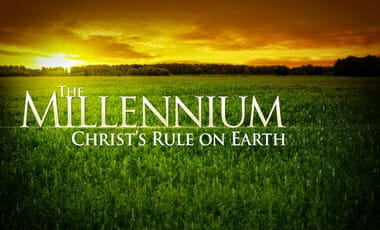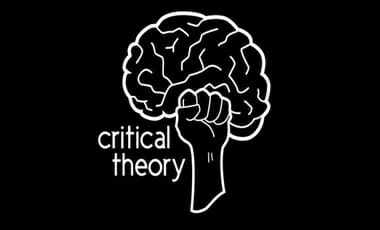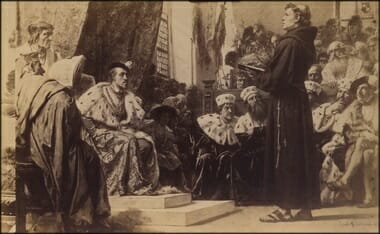While this post is about mainly Beth Moore, it will be a natural critique of other women preacher like Joyce Meyer, Priscilla Shirer, and others. But Revelation…
… expands even further that when persons prophecy non-Biblical ideas or additions to the clear enumeration of God’s Word, they are anathema. We use this warning when dealing with various cults and movements, like: J-Dubs, Mormons, New Agers, Word Faith/name it and claim it, and the like.
I can speak to this somewhat as the Word Faith theology was the root of havoc my parent adhered to. In the case of my father, to his death. And I came to a conclusion years ago, this understanding is very legalistic:
An additional point. This type of thinking is VERY legalistic. You will often hear about some Baptists practicing strict legalism over behavior. However, in the “Health and Wealth Gospel,” often time you HAVE to show the evidence of tongues in order to to show that you have the indwelling of the Holy Spirit. If you do not speak in tongues, you do not have the Spirit in you. This is legalism that changes even Jesus’ promise to us (John 14:15-31).
In this set of verses He [the Holy Spirit] is called Truth v. 16-17):
- “And I will ask the Father, and he will give you another advocate to help you and be with you forever—the Spirit of truth. The world cannot accept him, because it neither sees him nor knows him. But you know him, for he lives with you and will be in you.”
This is important because for all the evidences we give for the faith, we KNOW it to be true because of the inner witness of the Spirit. And “knowing” truth [Truth] is important when confronting a culture with God’s attributes that not only include love, but equally: justice, hatred of sin, and even judgement. Without truth [Truth], a Christian does not KNOW God, cannot express the Truth in love or in standing against evil. True evil.
It interferes with what Scripture is meant for as well:
- All Scripture is inspired by God and is profitable for teaching, for rebuking, for correcting, for training in righteousness, so that the man of God may be complete, equipped for every good work. (2 Timothy 3:16-17)
What a daunting rejection of God’s grace and plan for His church/people. Pride comes before a fall, and this is hubris on steroids!
What does the Bible say about women pastors?
John F. MacArthur and Paul Washer
And not only are these women pastors adding to Scripture and it’s meaning, as will be elucidated below, others do as well. Here is a snippet from my eulogy to my father:
… The charismatic and Pentecostal tradition has a lot to answer for in the proverbial “By-and-By.” Mind you, while I truly believe some of these people at my dad’s church are saved and are going to heaven, they are destroying lives of people around them. They just don’t see it.
Here I am adding a caveat.
If people follow the Word-Faith theology to its logical conclusion, then the person may not in fact be saved at all. My father rejected much of the following… I know because we argued this stuff for years. Some dangerous views that could lead some to eternal separation from their Creator are:
- Jesus is not God – Paul Crouch and Kenneth Copeland
- God is a Man 6ft Tall – Kenneth Copeland;
- God The Father Is From Another Planet (1) – Kenneth Copeland;
- God The Father Is From Another Planet (2) – Kenneth Copeland;
- Trinity isn’t Three, but Nine – Benny Hinn;
- God the Father Has A Body – Benny Hinn
Listen to more actual audio of these cultists preaching a twisted faith, HERE, stuff like:
- God the Father has a body;
- Trinity not important;
- Adam flew to the moon;
- men become gods;
- men are gods
Just like the early movement in the Corinthian church that had a similar emotional outburst and rejected a healthy-well-balanced theology that Paul spoke to in 1 Corinthian 14:23. Thus, Paul would have rebuked gracefully and doctrinally my dad’s church. …
BTW, the above was added to this post just this morning after the sermon from my church. This post, again is mainly focused on Beth Moore to add additional context to my previous posts, found here:
- Phil Johnson Discusses Beth Moore’s “Orthodoxy” (Wretched)
- An Introduction to Apologetics w/ Small Critique of Beth Moore
There will be some meaty videos below that will tend to be longer at times. I will also quote from some more theologically minded books on the topic that elucidate Scripture.
This is meant to embolden one with some Scripture and understanding as well as some resources for the serious layman. Also, it is updating my understanding of who Beth Moore has become since I last looked into her many years ago. She falsely follows the narrative of Christian nationalism), she has accepted the ideas of Critical Race Theory (CRT), and is self involved (a narcissist) as one of her past fans writes in an excellent thread. Not only have I in the past rejected her positions, after going thru her more recent issues and positions since that earlier time, I can more boldly say she is a false teacher and heretic. Many good links to critiques of her can be found HERE.
First up is Justin Peters, someone I have come to respect as a teacher due to my closeness to just how detrimental bad theology (Word of Faith) can be in one’s life.
Beth Moore has finally eschewed biblical complementarianism and come out of the egalitarian closet. In this program, I interview Susan Heck (who has every book in the New Testament memorized and several in the Old) about her concerns with Beth Moore. I also ask Susan about the egalitarian arguments of Priscilla, the women at the tomb, and Deborah.
The following is from Chapter two of a wonderful book authored by John Piper and Wayne Grudem: Recovering Biblical Manhood and Womanhood: A Response to Evangelical Feminism (I PDF’ed Chapter 2 HERE):
(2) What do you mean (in question 1) by “unbiblical female leadership in the church”?
We are persuaded that the Bible teaches that only men should be pastors and elders. That is, men should bear primary responsibility for Christlike leadership and teaching in the church. So it is unbiblical, we believe, and therefore detrimental, for women to assume this role. (See question 13.)
(3) Where in the Bible do you get the idea that only men should be the pastors and elders of the church?
The most explicit texts relating directly to the leadership of men in the church are 1 Timothy 2:11-15; 1 Corinthians 14:34-36; 11:2-16. The chapters in this book on these texts will give the detailed exegetical support for why we believe these texts give abiding sanction to an eldership of spiritual men. Moreover, the biblical connection between family and church strongly suggests that the headship of the husband at home leads naturally to the primary leadership of spiritual men in the church. (See chapter 13.)
[….]
(16) Aren’t the arguments made to defend the exclusion of women from the pastorate today parallel to the arguments Christians made to defend slavery in the nineteenth century?
See the beginning of our answer to this problem in question 15. The preservation of marriage is not parallel with the preservation of slavery. The existence of slavery is not rooted in any creation ordinance, but the existence of marriage is. Paul’s regulations for how slaves and masters related to each other do not assume the goodness of the institution of slavery. Rather, seeds for slavery’s dissolution were sown in Philemon 16 (“no longer as a slave, but better than a slave, as a dear brother”), Ephesians 6:9 (“Masters . . . do not threaten [your slaves]”), Colossians 4:1 (“Masters, provide your slaves what is right and fair”), and 1 Timothy 6:1-2 (masters are “brothers”). Where these seeds of equality came to full flower, the very institution of slavery would no longer be slavery.
But Paul’s regulations for how husbands and wives relate to each other in marriage do assume the goodness of the institution of marriage-and not only its goodness but also its foundation in the will of the Creator from the beginning of time (Ephesians 5:31-32). Moreover, in locating the foundation of marriage in the will of God at creation, Paul does so in a way that shows that his regulations for marriage also flow from this order of creation. He quotes Genesis 2:24, “they will become one flesh,” and says, “I am talking about Christ and the church.” From this “mystery” he draws out the pattern of the relationship between the husband as head (on the analogy of Christ) and the wife as his body or flesh (on the analogy of the church) and derives the appropriateness of the husband’s leadership and the wife’s submission. Thus Paul’s regulations concerning marriage are just as rooted in the created order as is the institution itself. This is not true of slavery. Therefore, while it is true that some slave owners in the nineteenth century argued in ways parallel with our defense of distinct roles in marriage, the parallel was superficial and misguided.
Mary Stewart Van Leeuwen points out, from 1 Timothy 6:1-6, that, according to the nineteenth-century Christian supporters of slavery, “even though the institution of slavery did not go back to creation . . . the fact that Paul based its maintenance on a revelation from Jesus himself meant that anyone wishing to abolish slavery (or even improve the slaves’ working conditions) was defying timeless biblical norms for society.”3 The problem with this argument is that Paul does not use the teachings of Jesus to “maintain” the institution of slavery, but to regulate the behavior of Christian slaves and masters in an institution that already existed in part because of sin. What Jesus endorses is the kind of inner freedom and love that is willing to go the extra mile in service, even when the demand is unjust (Matthew 5:41). Therefore, it is wrong to say that the words of Jesus give a foundation for slavery in the same way that creation gives a foundation for marriage. Jesus does not give any foundation for slavery, but creation gives an unshakeable foundation for marriage and its complementary roles for husband and wife.
Finally, if those who ask this question are concerned to avoid the mistakes of Christians who defended slavery, we must remember the real possibility that it is not we but evangelical feminists today who resemble nineteenth century defenders of slavery in the most significant way: using arguments from the Bible to justify conformity to some very strong pressures in contemporary society (in favor of slavery then, and feminism now).
And this next part is from Norman Geisler’s Systematic Theology
The Gender of an Elder
All elders were males, for they needed to be “the husband” of one wife (1 Tim. 3:2). Elder was a position of authority, and women were not “to usurp authority over the man” (1 Tim. 2:12). The reasons given, which clarify that this is not merely cultural, are based here on the order of creation and elsewhere (1 Cor. 11:3) on the nature of the Godhead. However, women are not inferior in nature, redemptive status, or spiritual gifting; they differ only in function.
Women Are Equal to Men in Nature
If women were naturally unequal to men because of their God-appointed role as submissive to their head, then Christ would be naturally inferior to God, since He is submissive to the Father (1 Cor. 11:3; 15:28). For instance, Jesus said, “I can of my own self do nothing: as I hear, I judge: and my judgment is just; because I seek not mine own will, but the will of the Father which hath sent me” (John 5:30; cf. 8:28). Both women and men were created in God’s image (cf. Gen. 1:27).
Women Are Equal to Men in Redemptive Status
Neither are women inferior as to redemptive status; soteriologically (salvifically), “there is neither Jew nor Greek, slave nor free, male nor female, for you are all one in Christ Jesus” (Gal. 3:28 niv).
Women Are Equal to Men in Spiritual Gifting
Nor are women inferior to men in the area of spiritual gifts, there being no sex indicators on the gifts. There were prophetesses in the New Testament (Acts 21:29); the woman Priscilla taught the man Apollos (Acts 18:26); and women prophesied in the church service, since Paul told them how to do it (1 Cor. 11:13).
Women Are Different in Function From Men
That women are different in function in no way makes them inferior; if anything, they have an unparalleled function—childbearing—which Paul singles out in 1 Timothy 2:15. Functions (or lack thereof) do not make one naturally inferior or superior to members of the opposite sex; they merely make one different. Everyone, male or female, functions best in his/her God-given role. For example, men are neither inferior because they cannot bear children nor superior
Apple doesn’t fall far from the tree:
Some more zeroed in issues… under the covering of a pastor, via Dr. Wayne Grudem:
DOES A PASTOR’S AUTHORITY
TRUMP SCRIPTURE?
Some evangelical feminists
say that women can teach if
they are “under the authority”
of the pastors or elders
Another liberal tendency among evangelical egalitarians is the claim that a woman may teach Scripture to men if she does so “under the authority of the pastor or elders.” I say this is indicative of a liberal tendency because on no other area of conduct would we be willing to say that someone can do what the Bible says not to do as long as the pastor and elders give their approval.
This position is found fairly often in evangelical churches. What makes this position different from others we have treated up to this point in the book is that many who take this view say they genuinely want to uphold male leadership in the church, and they say they are upholding male leadership when a woman teaches “under the authority of the elders” who are men (or of the pastor, who is a man).
On the other hand, this is not a commonly held view among the main egalitarian authors or those who support Christians for Biblical Equality, for example.[1] These writers do not think only men should be elders, so they surely don’t think that women need any approval from male elders to teach the Bible!
But this view comes up fairly often in phone calls or e-mails to the Council on Biblical Manhood and Womanhood (CBMW) office, and I often hear it in personal conversations and discussions of church policies.
Is it really true that a woman is obeying the Bible if she preaches a sermon “under the authority of the pastor and elders”?
The question here is, what does the Bible say? It does not merely say, “Preserve some kind of male authority in the congregation.” It does not say, “A woman may not teach men unless she is under the authority of the elders.” Rather, it says, “I do not permit a woman to teach or to exercise authority over a man” (1 Tim. 2:12).
Can a pastor or the elders of a church give a woman permission to disobey this statement of Scripture? Certainly not! Can a woman do what the Bible says not to do and excuse it by saying, “I’m under the authority of the elders”? Would we say that the elders of a church could tell people “under their authority” that they have permission to disobey other passages of Scripture?
What would we think of someone who said, “I’m going to rob a bank today because I need money and my pastor has given me permission, and I’m under his authority”? Or of a person who said, “I’m committing adultery because I’m unhappy in my marriage and my elders have given me permission, so I’m still under the authority of my elders”? Or of someone who said, “I’m committing perjury because I don’t want to go to jail and my pastor has given me permission, and I’m under his authority”? We would dismiss those statements as ridiculous, but they highlight the general principle that no pastor or church elder or bishop or any other church officer has the authority to give people permission to disobey God’s Word.
Someone may answer, “But we are respecting the Bible’s general principle of male headship in the church.” But Paul did not say, “Respect the general principle of male headship in your church.” He said, “I do not permit a woman to teach or to exercise authority over a man” (1 Tim. 2:12). We do not have the right to change what the Bible says and then obey some new “general principle of the Bible” that we have made up.
Nor do we have the right to take a specific teaching of Scripture and abstract some general principle from it (such as a principle of “male headship”) and then say that principle gives us the right to disobey the specific commands of Scripture that fall under that principle. We are not free to abstract general principles from the Bible however we wish, and then invent opinions about how those principles will apply in our situations. Such a procedure would allow people to evade any command of Scripture they were uncomfortable with. We would become a law unto ourselves, no longer subject to the authority of God’s Word.
We could try this same procedure with some other passages. Would we think it right to say that the Bible teaches that men should pray “without anger or quarreling, unless they quarrel under the authority of the elders” (see 1 Tim. 2:8)? Or that women should adorn themselves “with modesty and self-control, unless the elders give them permission to dress immodestly” (see 1 Tim. 2:9)? Or would we say that those who are “rich in this present age” should “be generous and ready to share, unless the elders give them permission to be stingy and miserly” (see 1 Tim. 6:1719)? But if we would not add “unless the elders give permission to do otherwise under their authority” to any of the other commands in Scripture, neither should we add that evasion to 1 Timothy 2:12.
If a woman says, “I will teach the Bible to men only when I am under the authority of the elders,” she has become no different from men who teach the Bible. No man in any church should teach the Bible publicly unless he also is under the authority of the elders (or pastor, or other church officers) in that church. The general principle is that anyone who does Bible teaching in a church should be subject to the established governing authority in that church, whether it is a board of elders, a board of deacons, a church governing council, or the church board. Both men and women alike are subject to that requirement. Therefore, upon reflection, it turns out that this “under the authority of the elders” position essentially says there is no difference between what men can do and what women can do in teaching the Bible to men.
Do we really think that is what Paul meant? Do we really think that Paul did not mean to say anything that applied only to women when he said, “I do not permit a woman to teach or to exercise authority over a man” (1 Tim. 2:12)?
Allowing a woman to disobey 1 Timothy 2:12 by saying she is doing so “under the authority of the elders” is setting a dangerous precedent by saying, in effect, that church leaders can give people permission to disobey Scripture. It is thus another step on the path toward liberalism.
[1] In fact, egalitarian author J. Lee Grady rejects this idea. He writes, in the context of talking about women who have public preaching ministries: “And in many cases, leaders have innocently twisted various Bible verses to suggest that a woman’s public ministry can be valid only if she is properly ‘covered’ by a male who is present” (J. Lee Grady, Ten Lies the Church Tells Women [Lake Mary, Fla.: Creation House, 2000], 89).
Beth Moore’s Wild Unbiblical Teachings: Michelle Lesley Interview
See Michelle Leslie’s articles on Beth HERE
10 Questions are asked in the RENEW.ORG article worth considering:
- Why are Women’s Bible Studies filled with False Teachers?
- Why did God create from scratch—not based on culture—male leadership roles in the Old Testament, in the ministry of Jesus, and in the New Testament church?
- Why make giftedness and not the created order the starting point?
- Why reject the priest/rabbi/synagogue role as a historical background for key texts in 1 Corinthians 11:3-5, 1 Corinthians 14:29-34, and 1 Timothy 2:11-13?
- How do Jesus and the Church mutually submit to each other?
- Does it bother you that you must redefine the understanding of so many passages and key words?
- What can you teach from Scripture on what makes a man distinct from a woman?
- How will you use Scripture as a basis for appointing female elders?
- Why do churches not grounded in secular Western egalitarianism tend to read these passages so differently?
- How will you stop the drift to gay, lesbian, and transgender affirmation and other forms of progressivism in your church?
A great read BTW!
Why are Women’s Bible Studies filled with False Teachers?
Why do so many women’s Bible studies have false word of faith teachings, and me-centered emotionalism from Beth Moore, Joyce Meyer, Priscilla Shirer, and similar false teachers? Noted women’s Bible study author, Susan Heck, discusses why women need sound theological teaching and the importance of memorizing Scripture. Susan describes how she memorized the entire New Testament, and she’s now in the process of memorizing the Old Testament.
GOT QUESTIONS ends with these two paragraphs to a wonderful read.
Many women excel in gifts of hospitality, mercy, teaching, evangelism, and helping/serving. Much of the ministry of the local church depends on women. Women in the church are not restricted from public praying or prophesying (1 Corinthians 11:5), only from having spiritual teaching authority over men. The Bible nowhere restricts women from exercising the gifts of the Holy Spirit (1 Corinthians 12). Women, just as much as men, are called to minister to others, to demonstrate the fruit of the Spirit (Galatians 5:22–23), and to proclaim the gospel to the lost (Matthew 28:18–20; Acts 1:8; 1 Peter 3:15).
God has ordained that only men are to serve in positions of spiritual teaching authority in the church. This does not imply men are better teachers or that women are inferior or less intelligent. It is simply the way God designed the church to function. Men are to set the example in spiritual leadership—in their lives and through their words. Women are also to set an example in their lives, but in a different way (1 Peter 3:1-6). Women are encouraged to teach other women (Titus 2:3–5). The Bible also does not restrict women from teaching children. The only activity women are restricted from is teaching or having spiritual authority over men. This bars women from serving as pastors to men. This does not make women less important, by any means; rather, it gives them a ministry focus more in agreement with God’s design.
I will end with CHRISTIAN PIRATE MEDIA dealing with some prophecy by Beth Moore that is essentially adding to Scripture.
Beth Moore’s “Outpouring ‘Prophecy'” | Pirate Christian Radio Flashback













